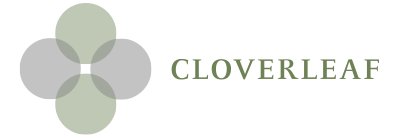Cloverleaf’s Take on the State of the Commercial Real Estate Market
I hope everyone has been enjoying summer!
The following is a brief note about the state of today’s commercial real estate market, Cloverleaf’s response as a buyer, and potential investment opportunities.
The market is in a state of instability and flux, resulting in historically low transactional activity. In addition to our own observations and recent experience, industry data suggests a severe decline in commercial real estate closings. According to Mitchell Kiven, First Vice President at Marcus & Millichap in Chicago, “Transaction volume is down 58% from the cycle’s peak in the fourth quarter of 2021; if you look at it from a dollar volume perspective, the difference is even more stark at 70%.”
Noting the impact of significantly higher interest rates on commercial real estate sales, Kiven adds that in more active times, “it was common to buy a multitenant retail center in the Midwest with 300+ basis points of spread between your interest rate and your cap rate.” Cap rate (short for capitalization rate) is an investment property’s anticipated rate of return relative to its net operating income. Therefore, the lower the price, the higher the cap rate and vice versa. Many would-be sellers have been unwilling to meaningfully lower prices (i.e., increase cap rates) to reflect current interest rates. Therefore, if one assumes comparable debt levels to those sought in a lower interest rate environment but without commensurate price reductions, the result is negative leverage; the debt negatively impacts the rate of return of cash flow rather than boosting it.
Cloverleaf has always been a relatively low leverage buyer, but even with our debt levels, it is challenging to underwrite properties at the kind of prices many sellers have been seeking. Therefore, in recent months we have been modeling prospective acquisitions with either no debt or an even lower loan-to-value than normal (e.g., 25%). From there, we have simply been pursuing properties we like at prices that make sense to us, regardless of the ask price.
Using that approach, we have made offers on several properties over the last few months – some in formal letters of intent and others in communications with owners or their brokers. To date, we have been unsuccessful. We have been told that while our offers are clean and predictable, our pricing is too low. However, our understanding is that most of these properties have not actually sold. We believe that most of the owners are either entangled in renegotiations from higher bidders or simply unwilling to accept market pricing.
Not selling is, of course, any owner’s prerogative. However, what will happen to assets that are in some level of distress? Will owners of those properties be more apt to lower price expectations?
Debt is beginning to mature on many commercial property mortgages with below market rates. According to Marcus & Millichap, there is approximately $55 billion in total loan maturities for retail/service properties alone in 2023, around $64 billion in 2024, and around $55 billion in 2025. There are even more maturity issues in other real estate sectors, particularly office and multifamily. So far, there has not been a major influx of bank-owned assets coming to market in the retail/service sector and all signs, coupled with recent history, suggest that lenders will be reluctant to foreclose on a sizable mass of properties.
But the longer interest rates remain relatively high, some owners may find a sale – even at a lower price than previously sought – more attractive than continued ownership. Lenders may require some owners to increase their equity positions to right-size mortgage debt, and owners may need to contribute additional equity to fund property needs. While we do not wish bad fortune on anyone, we are optimistic these realities will yield more opportunities for low debt buyers like Cloverleaf.
In the meantime, we will continue seeking attractive acquisitions for Cloverleaf investors, offering at prices that meet our objectives. While the market is quiet today, we believe our patience, predictability, and willingness to buy with reduced debt will be rewarded.
If you have any questions or would like to discuss this topic further, please contact me at 847-272-3300 or jeb@cleafgroup.com.
Jonathan Basofin
Principal


